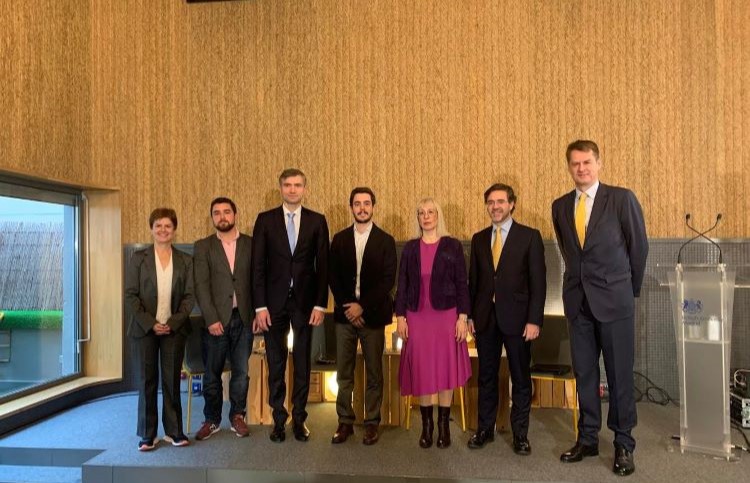The Diplomat
The Minister Counselor of the Ukrainian Embassy in Spain, Dmytro Matiuschenko, has warned that “thousands of Ukrainians are suffering from massive Russian attacks on civilian infrastructure” in these days when “we are approaching the Christmas holidays”.
Matiuschenko participated this past Thursday in the opening of the round table Lessons from the Russian invasion of Ukraine. A look ahead, organized by the British Embassy in Madrid to address the implications that the war unleashed by Russia in Ukraine is having on the whole of Europe and to analyze the lessons that can be drawn from this fact at the geostrategic, economic and political level.
During the opening of the event, the UK Ambassador to Spain, Hugh Elliott, warned against the risk of normalizing a war that is now almost ten months old. “We must not forget and we cannot get used to it,” said the British representative, who reiterated the UK’s firm commitment to Ukraine, working closely with Spain and the other allies to make Russia pay for its brutal actions. “We have impressive resilience, solidarity and unity, which has outstripped any calculations Putin made when he launched this disastrous and brutal strategy,” he said.
For his part, Dmytro Matiuschenko lamented the more than 8,500 civilian deaths in this time, including more than 400 children. “In these days when we are approaching the Christmas holidays, thousands of Ukrainians in my country are suffering from massive Russian attacks on civilian infrastructure,” he denounced. For all these reasons, the Minister Counselor stressed the importance of trying Russia for its crimes against humanity in an international court and stressed that “the unity of all democratic countries is very important for victory”, thanking, in this regard, the support shown by Spain and the United Kingdom in these months.
On behalf of the Spanish Ministry of Foreign Affairs, the Director General for North America, Eastern Europe, Asia and the Pacific, Javier Salido, praised the heroism and resilience of the Ukrainian people and government and warned that “Russia’s actions are a clear threat, not only to Europe, but to global stability and security”. He also highlighted the support of Spain – the fourth country with the highest number of refugee arrivals in the entire European Union – and expressed his desire, on a note of optimism for the future, to see “a prosperous Ukraine in which citizens can live in peace and decide their future, within its internationally recognized sovereign borders.”
During the debate – moderated by the head of press and spokesperson of the British Embassy, Teresa Larraz – the senior analyst for Russia, Eurasia and the Balkans of the Elcano Royal Institute, Mira Milosevich, stated that the main strategic lesson of this war is that deterrence has not worked and that the dialogue between Russia and the West has failed, and she defended, in this sense, an approach based on territorial defense and deterrence in Europe.
For his part, the co-director of the international analysis media outlet El Orden Mundial (The World Order,) Blas Moreno, warned of the need to review the future relationship between Europe and Russia. “Russia is a neighbor that is always going to be there and to deal with, but it is at the same time an adversary, an aggressor. Europe has realized that we have to review that relationship, that it is not going to be able to be the same as it was before the war,” he said.
Likewise, the director of Ecological Transition at the public advocacy firm beBartlet, Alejandro Labanda, stressed that one of the consequences of the war has been the accelerated deployment of renewable energies, no longer for environmental reasons, but for energy security reasons. “We have been aware that energy was being used as a weapon of war, and therefore the search for alternative suppliers has been activated. The energy transition process has been accelerated in order to be more robust and have less energy dependence,” he added.







